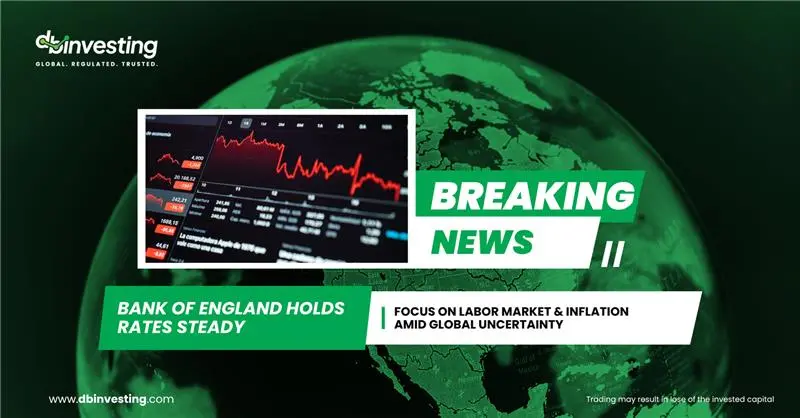Focus on Labor Market & Inflation Amid Global Uncertainty
The Bank of England held interest rates at 4.25% on Thursday, as expected, emphasizing risks from a weakening labor market and rising energy prices amid escalating tensions in the Middle East.
In a move reflecting ongoing global uncertainty and persistent inflation, the Monetary Policy Committee (MPC) voted 6–3 in favor of maintaining current rates. Deputy Governor Dave Ramsden joined Swati Dhingra and Alan Taylor in voting for a 25 basis point cut.
BoE Governor Andrew Bailey noted, “Interest rates remain on a gradual downward path,” while stressing that policymakers are not following a pre-set course.
He added, “The world is highly unpredictable. In the UK, we’re seeing signs of labor market easing, and we will closely monitor how this affects consumer price inflation.”
Before Thursday’s decision, markets had expected the Bank to make two additional quarter-point cuts, bringing the rate down to 3.75% by December 2025.
The central bank reaffirmed its previous guidance of a “gradual and cautious” approach to future rate reductions.
In its analysis, the BoE struck a slightly less pessimistic tone regarding the impact of former U.S. President Donald Trump’s tariffs, noting they may be less damaging than previously anticipated in May. However, it added that ongoing trade uncertainty continues to weigh on the UK economy.
Inflation forecasts were largely unchanged for the second half of 2025, with the BoE projecting inflation to peak at 3.7% in September and to average slightly below 3.5% for the remainder of the year.
The Bank also expects UK GDP to grow by 0.25% in Q2—slightly stronger than its May projections, though it described the underlying growth momentum as weak.
Conclusion:
The Bank of England’s cautious stance highlights the delicate balance between controlling inflation and supporting a fragile economy, as global and domestic uncertainties continue to shape its monetary policy outlook.






